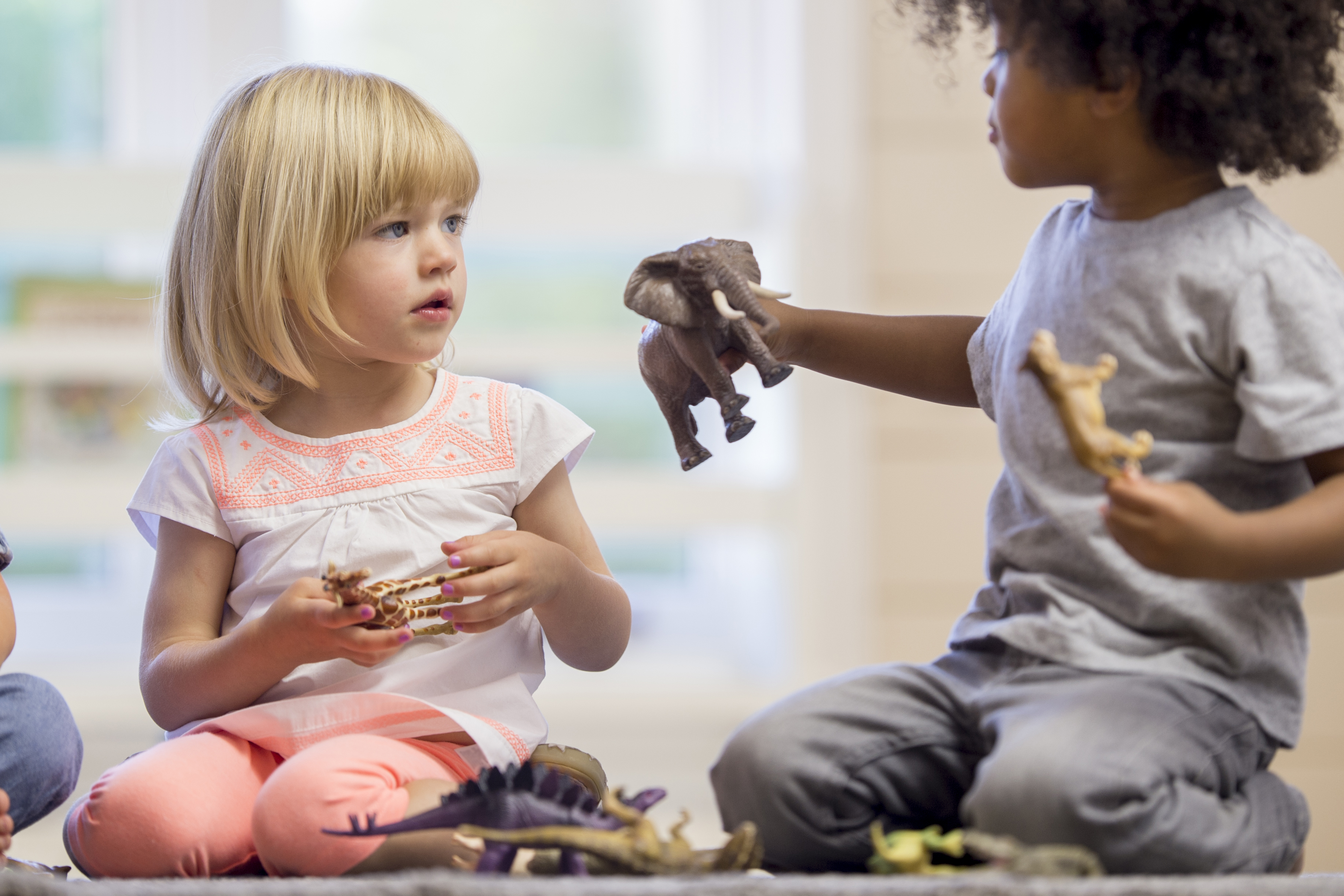- 877.624.2602
- Schedule a Tour

As parents, we want our children to be generous, kind, and cooperative with others. We may think we can help children learn these skills by requiring them to share. However, many educators now believe that forcing children to share does not actually teach the lessons we intend. Let’s explore a few of the social skills we want our children to learn, and how we can help strengthen those skills in everyday situations.
Problem-solving: When children argue over an object, it’s often the child who cries the loudest or complains the most who ends up winning the battle. It is natural to want the crying to stop or to give in, because we don’t know what else to do. However, doing so teaches the child that he or she will get what they want through complaining or crying.
Children learn valuable skills when adults do not automatically jump in to solve every problem for them. When two children argue over a toy, they can often work it out themselves – if given the time and opportunity. If that isn’t working, rather than give them a solution, respond with questions such as:
- “I see you both want the doll. What do you think would be fair? Should we set a timer and you can take turns playing with it for a few minutes? Or shall we find another doll so you can play with both dolls together?”
- “You both want the last cookie, but there is only one. What can we do that would be fair to everyone?”
Assertiveness: By giving your child the opportunity to say “No” to someone who wants something of theirs, you are teaching them to be assertive. Your child is not necessarily being impolite, but you could help by modeling phrases they can use, including:
- “I’m still playing with it.”
- “You can have it when I’m done.”
- “It’s my turn now, then it can be your turn.”
Patience: By modeling patience, we show our children that we don’t always get what we want, when we want it. Like assertiveness, this is a valuable life lesson for children. You can help by pairing words with your child’s feelings. Remember to point out when they act in a positive way, as well. Some examples include:
- “I see that you are mad/sad because your brother has the toy right now.”
- “I know it is frustrating to wait, but Sophia isn’t done playing.”
- “I see that you want the toy Liam is playing with. I like how you asked him for it and are now waiting your turn.”
Don’t forget to make sure your child follows through with taking turns. When they’re done using a toy, encourage them to give it to the child whose turn is next. Children will generally feel more competent, confident, and satisfied when the decisions being made are their own.
Ultimately, we want our children to share because they want to be cooperative and kind to their friends and siblings, not because they feel obligated. Child-directed sharing can empower your little one to develop independent skills necessary for a happy, healthy life.
